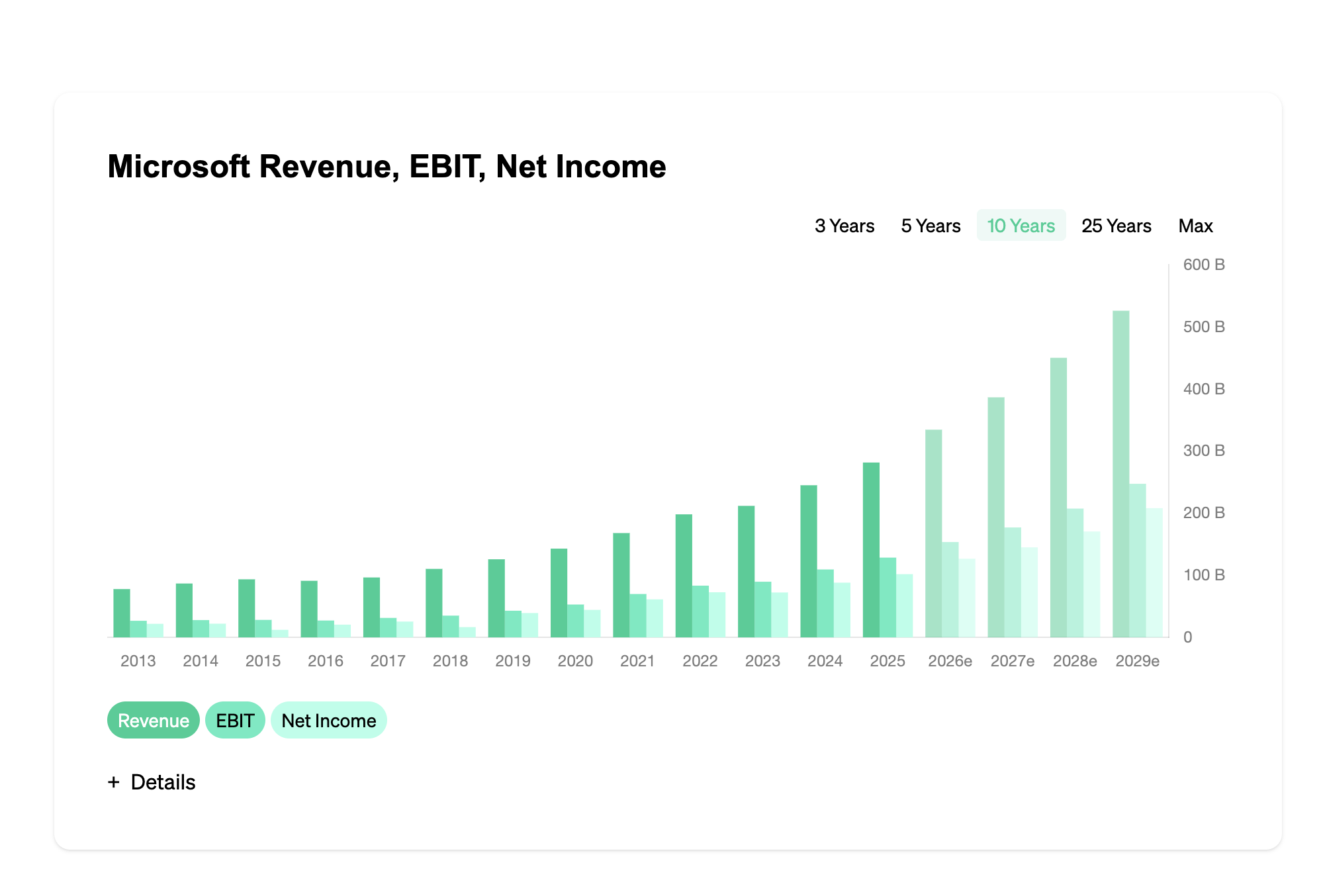problemlose Ware
Definition und Erklärung
TL;DR – Kurzdefinition
Zu den FAQs →problemlose Ware: Definition: "Problemlose Ware" "Problemlose Ware" refers to a term used in the context of capital markets, specifically in the realm of investing in stocks, loans, bonds, money markets, and cryptocurrencies. The term encapsulates the concept of a financial instrument or asset that is characterized by its seamless and trouble-free nature, ensuring smooth transactions and minimal risks for investors. In the world of capital markets, where risks are inherent, "problemlose Ware" represents an investment option that is considered highly reliable, efficient, and secure. It refers to financial products that are known for their stability, liquidity, and ease of trading, attracting investors seeking hassle-free experiences. This term is often employed to describe assets such as blue-chip stocks, which are shares of well-established companies with a proven track record of consistent performance and low volatility. Such stocks are regarded as "problemlose Ware" due to their strong market position, extensive corporate governance practices, and regular dividend payouts. These attributes offer investors assurance and reduce uncertainties typically associated with investing in more volatile or speculative stocks. Additionally, "problemlose Ware" can also be associated with bonds issued by financially sound entities, like governments or highly rated corporations. These bonds often have reliable payment structures, predictable interest rates, and a high level of marketability, providing investors with a secure and steady income stream. Furthermore, in the context of loans and money markets, "problemlose Ware" applies to financial instruments that exhibit low default risk, minimal transactional complexities, and high liquidity. These loans often come with favorable terms, backed by robust collateral, and extended payment periods, ensuring smooth repayment processes and minimizing the potential for default. In recent years, the term "problemlose Ware" has also been adapted to encompass the emerging domain of cryptocurrencies. While this digital asset class presents unique risks due to its decentralized and volatile nature, certain cryptocurrencies are recognized as more reliable and secure, thus gaining the reputation of "problemlose Ware" within the crypto space. In conclusion, "problemlose Ware" is a German term that refers to the highest caliber of financial instruments and assets available in capital markets. With an emphasis on stable performance, ease of trading, and low risks, these investments offer investors a seamless experience. Whether it applies to stocks, loans, bonds, money markets, or cryptocurrencies, "problemlose Ware" is highly coveted by those seeking reliable and secure investment opportunities. Be sure to visit Eulerpool.com, a leading website for equity research and finance news, to explore in-depth knowledge about various financial terms, including comprehensive explanations of "problemlose Ware" and other essential concepts in the world of capital markets. Our glossary provides extensive resources to help investors make well-informed decisions within the dynamic domain of finance.
Ausführliche Definition
Häufig gestellte Fragen zu problemlose Ware
Was bedeutet problemlose Ware?
Definition: "Problemlose Ware" "Problemlose Ware" refers to a term used in the context of capital markets, specifically in the realm of investing in stocks, loans, bonds, money markets, and cryptocurrencies. The term encapsulates the concept of a financial instrument or asset that is characterized by its seamless and trouble-free nature, ensuring smooth transactions and minimal risks for investors.
Wie wird problemlose Ware beim Investieren verwendet?
„problemlose Ware“ hilft dabei, Informationen einzuordnen und Entscheidungen an der Börse besser zu verstehen. Wichtig ist immer der Kontext (Branche, Marktphase, Vergleichswerte).
Woran erkenne ich problemlose Ware in der Praxis?
Achte darauf, wo der Begriff in Unternehmensberichten, Kennzahlen oder Nachrichten auftaucht. In der Regel wird „problemlose Ware“ genutzt, um Entwicklungen zu beschreiben oder Größen vergleichbar zu machen.
Welche typischen Fehler gibt es bei problemlose Ware?
Häufige Fehler sind: falscher Vergleich (Äpfel mit Birnen), isolierte Betrachtung ohne Kontext und das Überinterpretieren einzelner Werte. Nutze „problemlose Ware“ zusammen mit weiteren Kennzahlen/Infos.
Welche Begriffe sind eng verwandt mit problemlose Ware?
Ähnliche Begriffe findest du weiter unten unter „Leserfavoriten“ bzw. verwandten Einträgen. Diese helfen, „problemlose Ware“ besser abzugrenzen und im Gesamtbild zu verstehen.
Leserfavoriten im Eulerpool Börsenlexikon
Richtsatzwerte
Richtsatzwerte sind in der Finanzwelt von großer Bedeutung, insbesondere für Investoren, die sich mit Kapitalmärkten beschäftigen. Der Begriff Richtsatzwerte bezieht sich auf Zahlungskonditionen, die von einer Zentralbank oder einer Regulierungsbehörde...
Transmission Control Protocol/Internet Protocol
Das Transmission Control Protocol/Internet Protocol (TCP/IP) ist ein grundlegendes Kommunikationsprotokoll, das für den Austausch von Daten in Computernetzwerken verwendet wird. Es ist das grundlegende Protokoll, auf dem das Internet aufgebaut...
Aktions-Reaktions-Verbundenheit
"Aktions-Reaktions-Verbundenheit" ist ein Begriff aus der Welt der Kapitalmärkte, der eine fundamentale Verbindung zwischen unterschiedlichen Akteuren und deren Reaktionen aufeinander beschreibt. Diese Konzeption spielt insbesondere im Bereich der Aktienmärkte, Kredite,...
globales Management
Globales Management beschreibt die strategische Führung und Koordination einer multinationalen Organisation, um ihre Geschäftsaktivitäten erfolgreich auf globaler Ebene zu gestalten. Es umfasst die Entwicklung und Umsetzung von Plänen, um Ressourcen,...
Awareness Marketing
Awareness Marketing, auch bekannt als Bekanntheitsmarketing, ist eine Marketingstrategie, die darauf abzielt, das Bewusstsein für eine Marke, ein Produkt oder eine Dienstleistung zu steigern. Diese Art des Marketings zielt darauf...
Kapitalsammelstellen
Kapitalsammelstellen ist ein Fachbegriff, der sich auf Organisationen oder Einrichtungen bezieht, die Kapital von Investoren sammeln, um es dann in verschiedenen Anlageoptionen zu investieren. Diese Kapitalquellen spielen eine entscheidende Rolle...
Transformationsausgaben
Titel: Transformationsausgaben - Definition und Bedeutung im Bereich der Kapitalmärkte Transformationsausgaben sind ein wesentlicher Begriff im Bereich der Kapitalmärkte und beziehen sich auf die Ausgaben, die ein Unternehmen tätigt, um seine...
Mineralölsteuer
Mineralölsteuer – Definition, Bedeutung und Auswirkungen auf die Kapitalmärkte Die Mineralölsteuer ist eine Abgabe, die auf den Verkauf und die Verwendung von Mineralölprodukten erhoben wird. In Deutschland und vielen anderen Ländern...
Warenlager
Warenlager Das Warenlager ist ein zentraler Begriff in der Welt des Investierens in Kapitalmärkten wie Aktien, Kredite, Anleihen, Geldmärkte und Kryptowährungen. Als Bestandteil des umfassenden Lexikons für Investoren auf Eulerpool.com, einer...
Heiratstafeln
"Heiratstafeln" ist ein Begriff aus der Finanzwelt, der sich auf eine spezifische Art von Anleihetiteln bezieht, die in Deutschland ausgegeben werden. Diese Anleihen werden auch als "Eheverträge" bezeichnet, da sie...

